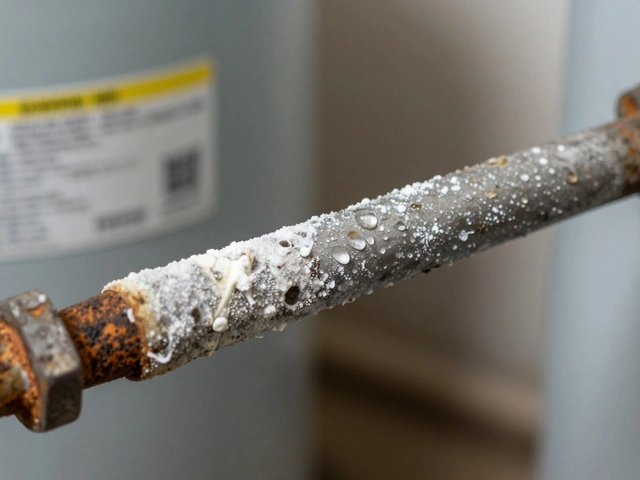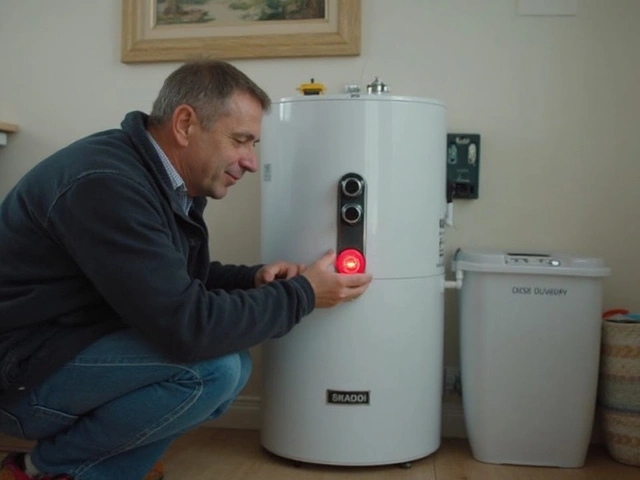Got a fridge that won’t chill or a washing machine that’s making weird noises? You’re in the right spot. This page pulls together dozens of easy‑to‑follow guides that help you fix, maintain, and understand the life expectancy of the appliances you use every day.
From heat pumps that lose warmth to ovens that won’t heat up, each article gives step‑by‑step instructions you can try before you pick up the phone. We’ve also added tips on when a repair is worth the cost and when it makes more sense to replace. Think of it as your personal cheat‑sheet for avoiding costly service calls.
Most appliance issues have a simple cause: a clogged filter, a loose connection, or a worn‑out element. For example, a fridge that’s cold on the top but warm on the bottom usually needs a coil clean‑up. An electric oven that won’t heat often has a bad heating element – replace it yourself with a screwdriver and a new part.
Our guide on electric hob elements walks you through removing the faulty burner, checking the wiring, and getting the oven back to work in under an hour. If your dishwasher isn’t draining, a quick clean of the pump and spray arms can solve it. These fixes take minutes, not hours, and they save you a call‑out fee.
Living in the UK means dealing with hard water, damp basements and temperature swings. Regular maintenance prevents those hidden problems from turning into major breakdowns. Flushing your water heater twice a year, cleaning the lint filter on a dryer after each load, and checking the seal on a fridge door are all tiny habits that add years to the machine’s life.
We also cover the typical lifespan of key appliances – washing machines usually last 8‑10 years, while heat pumps can keep running for 15‑20 years with proper care. Knowing the warning signs – odd noises, longer cycles, or inconsistent temperatures – lets you act before a small issue becomes a full‑blown failure.
Whether you’re a DIY enthusiast or just want to know when to call a pro, the articles linked on this page give you the confidence to tackle most problems. Use the search bar to jump straight to the appliance you’re dealing with, and follow the practical steps we’ve laid out.
Remember, safety comes first. Always turn off power at the mains before you start any repair, and if you ever feel unsure, a qualified technician is just a call away. With the right know‑how, you’ll keep your appliances running smoothly and avoid unexpected breakdowns.

Get to know the four appliances that no modern home can do without, why they matter, and how to keep them working smoothly. Discover easy maintenance tips, signs of trouble, and smart ways to save money on repairs. If you want your home to run without a hitch, paying attention to these basics is a must. This article makes home appliance care straightforward and stress-free. No fluff, just practical advice you can actually use.

Discover how to ensure your water heater is in proper working condition with this detailed guide. Learn to identify signs of malfunction, perform essential maintenance tasks, and understand common issues that may arise. Whether it's electric or gas, having a reliable water heater is crucial for every home. Keep your heater running smoothly with practical and safety-focused advice.

Exploring the value of repairing a freezer involves assessing various factors, such as the cost of repairs, the appliance's age, and the efficiency improvements of newer models. Understanding common freezer problems can help homeowners decide whether a repair is worthwhile. The decision should account for both economic and environmental perspectives, guiding when to repair or replace.

Water heaters commonly fail due to anode rod corrosion, heating element burnout, thermostat issues, and tank rust. Learn the top 5 causes and how to prevent them before you're left with no hot water.

Ever wondered why you end up pushing that red reset button on your water heater over and over? This article digs into exactly what the reset button does, why it keeps tripping, and what can go wrong if you keep hitting it. Get clear answers about hidden water heater issues and learn simple steps to protect your system—and your wallet. We’ll walk you through warning signs, smart troubleshooting tips, and when it’s time to call a pro. No tech jargon, just straight talk for anyone tired of cold showers.

Is your heat pump not blowing warm air? Here’s what causes it and how you can troubleshoot the issue. Easy fixes and tips for a cozy home.